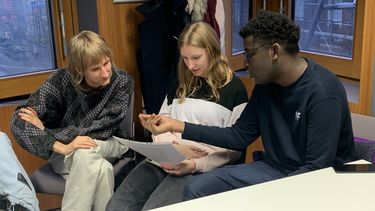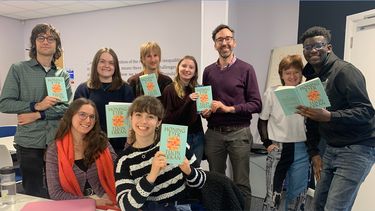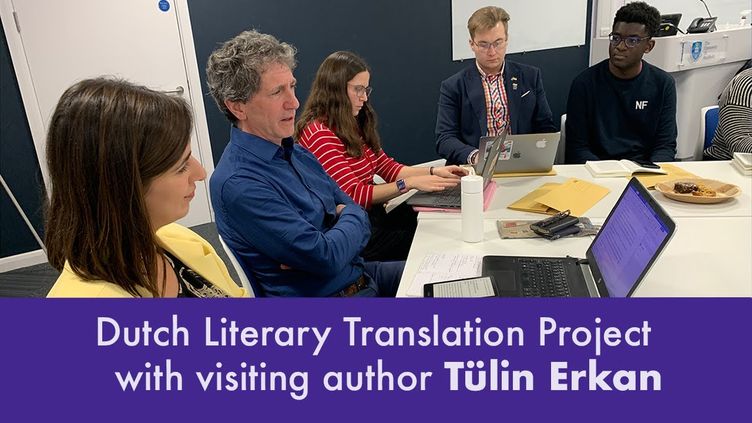In December 2023, Tülin Erkan, author of the contemplative and dream-like novel Honingeter (Honeyeater) visited Sheffield to sign off the English translation of an extract from her book.
Originally written in Dutch and set at an airport in Istanbul, Honingeter meditates on the protagonist’s complex relationship with language, family, saying goodbye, and her father’s native Turkey. Being able to collaborate with both the author and long-time Dutch studies partner, translator Jonathan Reeder helped us to transfer these themes both linguistically and culturally to an English reader, from the extended metaphor of the mouth (the articulator of language) to whether an escalator can ‘wash’ a child up at your feet, symbolic of the migration crisis.
Trust
Though it may seem like the obvious career path after a languages degree, for many of us, translation can be a pretty daunting task. Especially when the author is involved in the process, and the sample translation is for publication on the-low-countries.com — creating a taster to get people outside the Dutch-speaking world excited about Erkan’s work. The trust the author put in us as translators was remarkable, stressing that a writer can’t hold onto a piece forever: eventually it has to be let go for others to read, interpret and work with. Despite being a fluent English speaker herself, Erkan gave us the reins with the piece and in turn, we could start to trust ourselves as skilled Dutch-English translators.
A jigsaw put together
While the extract was initially translated piece by piece in sub-teams, the jigsaw was put together at a Translation Symposium in December where the whole group could discuss the issues they ran into in the translation process and receive feedback and advice from each other, the author and a professional literary translator.
We discussed unusual verbs such as meesluimeren (literally, to slumber along with), and how to write about borders in airspace. Everyone was able to fight their idea’s corner but also willing to concede and negotiate solutions which made for amazingly productive meetings. The symposium, facilitated by our teachers Henriëtte Louwerse, Filip De Ceuster (UoS) and Christine Sas (UCL) made the project more than just a university deadline: this was a professional collaboration and a cultural exchange.
Finishing touches
Then a student editing team was put together to make the finishing touches and create a cohesive text for publication. Student Pop Mainwaring was a member of the editing team:
It was so interesting to get a closer look into the work of translators and editors. We took a step back from the translation and had to view the piece as a whole to bring it together in the editing process. Jonathan Reeder provided valuable feedback on our work, whilst also giving us the freedom to make the final decisions. I think I speak for the whole editorial team when I say that we are really proud of our work!
Pop Mainwaring
Editorial team
An experience outside of the realms of marks and grade averages such as this was invaluable in our university careers. Dutch Studies have provided an amazing platform for us to showcase and develop our capabilities not only in Dutch, but as negotiators, leaders, writers and speakers. We feel fortunate to have worked with such a thought-provoking text and been given the faith to create something equally wonderful from it.
Theo Taylor (BA Linguistics and Modern Languages and Cultures, University of Sheffield)
With many thanks to Jonathan Reeder and Tülin Erkan, Henriette Louwerse and Filip De Ceuster of the University of Sheffield, Christine Sas of UCL.
The Translation Project was sponsored by Nederlandse Taalunie, Flemish Foundation for Literature, and Netherlands Embassy in London





